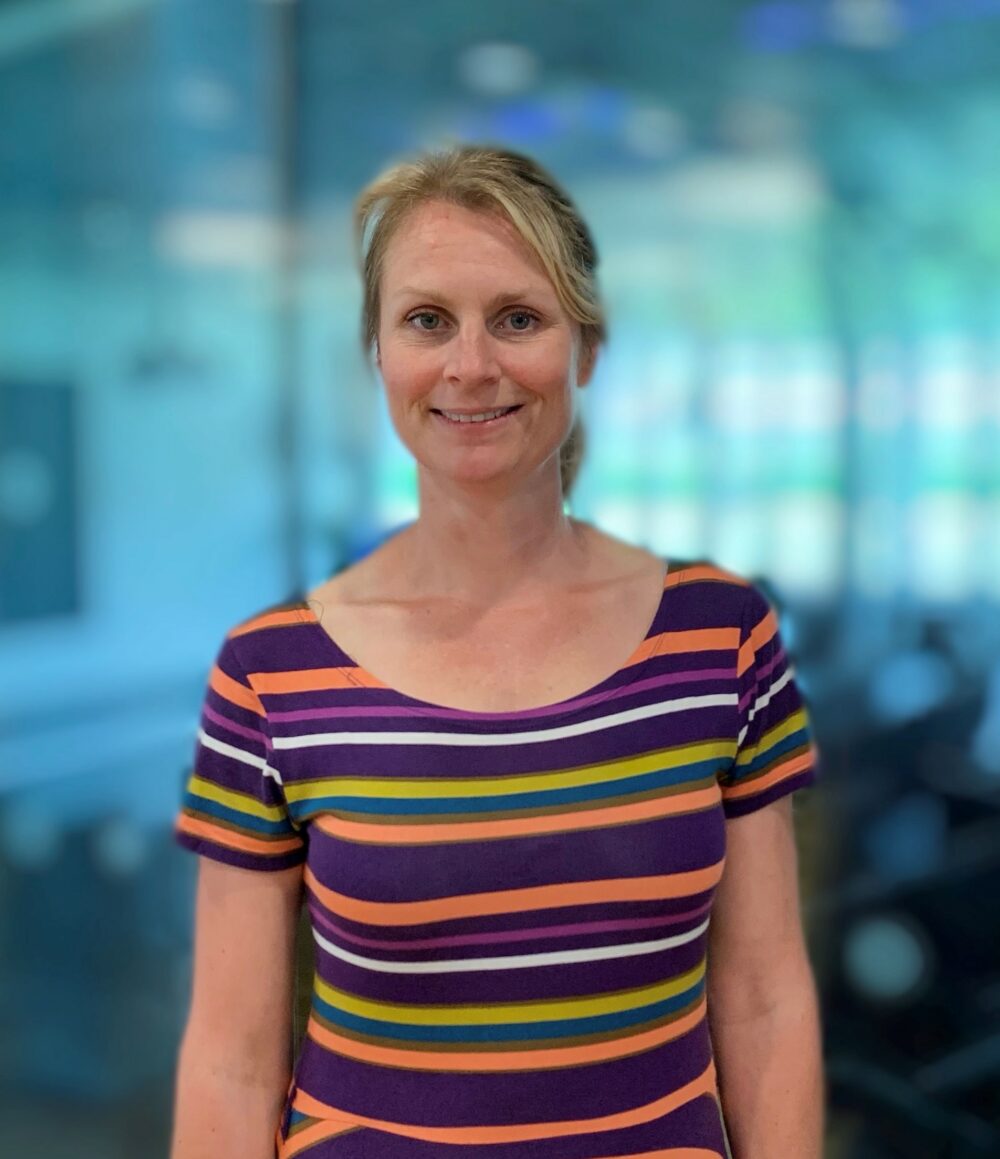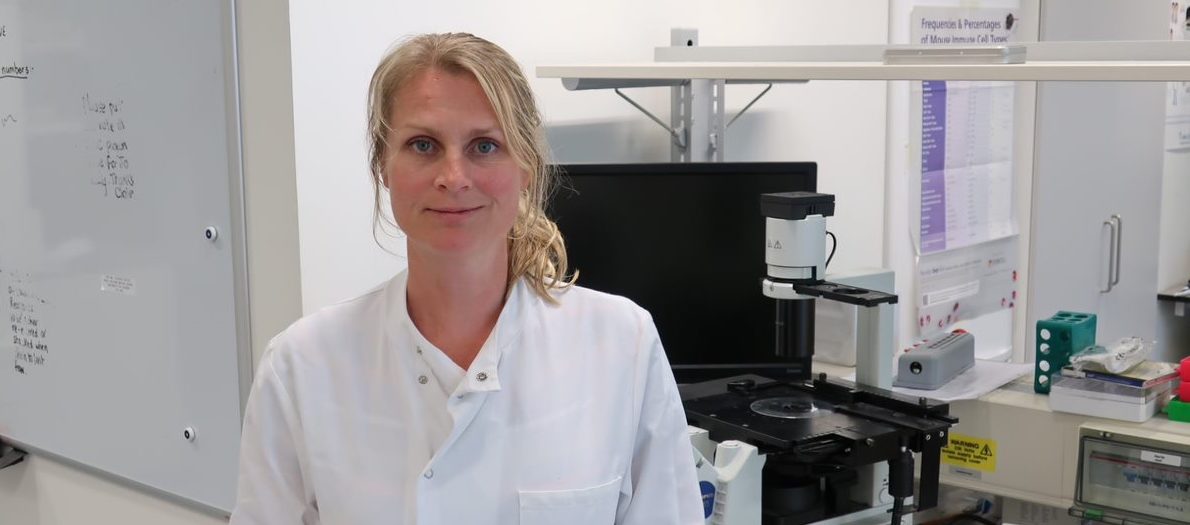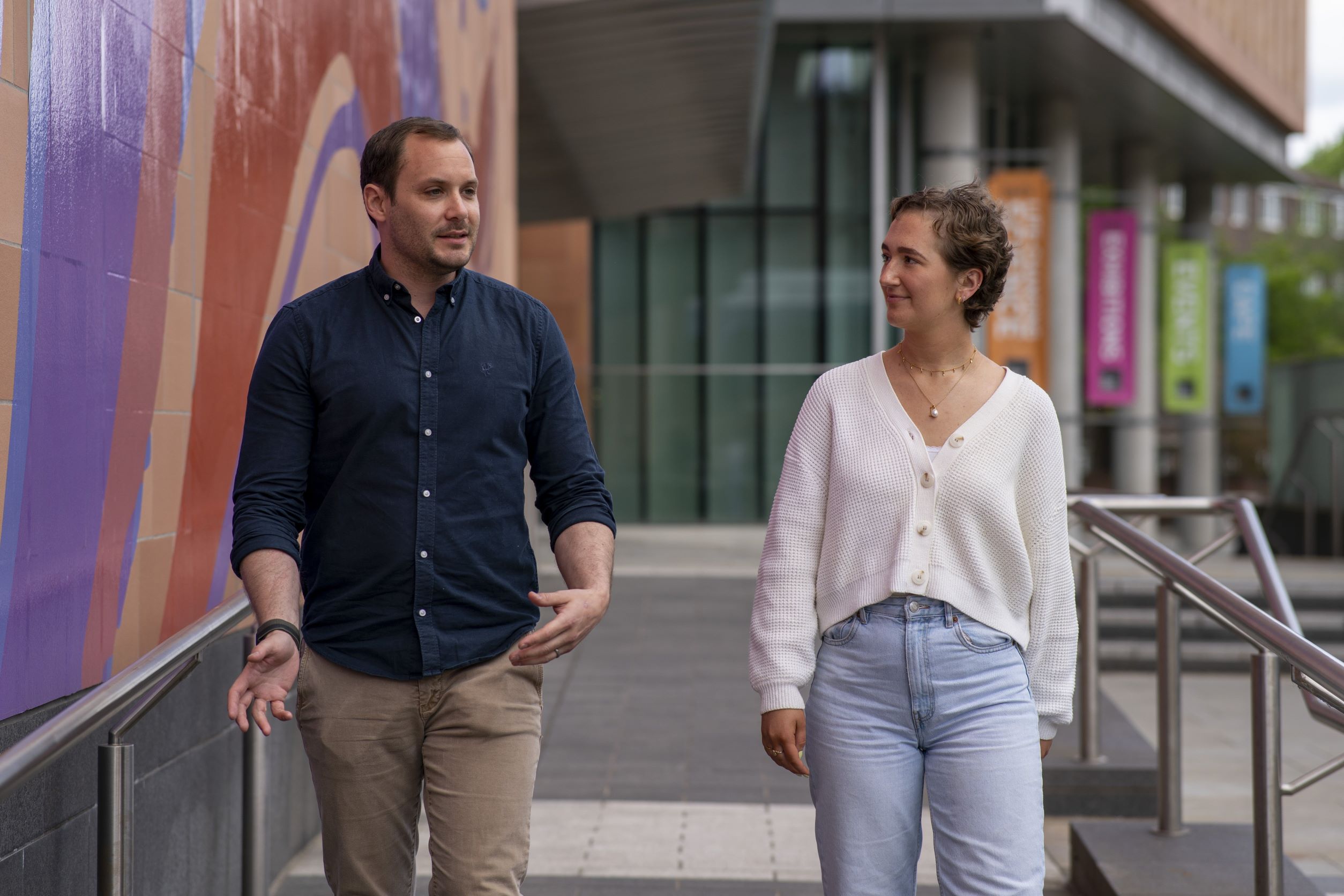Detecting blood cancer at the earliest opportunity
What if we could detect genetic changes in blood stem cells before blood cancer develops? The ultimate hope for the future, new drug targets that could prevent blood cancer developing?

Dr Kristina Kirschner, Leukaemia UK John Goldman Fellow, hopes to find markers which could be used to detect faulty blood cells before they cause blood cancer. Ultimately, helping to stop leukaemia devastating more lives.
 What is this research looking at?
What is this research looking at?
Like many cancers, age is an important risk factor for blood cancers. As we get older, the blood stem cells (haematopoietic stem cells, or HSCs) in our bone marrow accumulate small changes in their DNA code. Most of the time these mutations have no effect. However, sometimes, they can contribute to the development of blood cancer or a decrease in our body’s ability to fight infections.
Dr Kristina Kirschner has recently discovered that in the bone marrow of old mice, there are small groups of HSCs which carry mutations in a gene called TP53 – an important gene which normally helps to prevent cancer from developing. These mutations could lead to the HSCs to transform into fully cancerous cells.
Cutting-edge technologies
In this project, Kristina set out to understand how HSCs change as they age, and the consequences of the mutations and variations that accumulate in their DNA over time. She planned to carry this out using cutting-edge ‘single-cell’ techniques which look at DNA and the activity of genes of individual HSCs, rather than a collection of cells, as would be the case in a blood sample or a bone marrow biopsy.
What happened in this project?
The COVID-19 pandemic disrupted work she had planned to study HSCs from old mice. However, instead, Kristna used data and samples from a study called the Lothian Birth Cohorts. This study is one of the world’s most comprehensive assessments of ageing in later life (70-90 years old). 1,500 people from two of the groups in this study had already provided blood samples every three years from the age of 70 and 79, which Kristina was able to access. This allowed Kristina to monitor mutations in blood cells in older people for up to 15 years.
Using these samples, Kristina found that mutations and variations in specific genes can affect the function of HSCs, as well as the speed at which they multiply. Her aim was to identify specific vulnerabilities in diseased cells that can be detected early, before cancer develops, and could potentially be targeted with drugs. She was able to find gene-specific effects on HSCs from people in the Lothian Birth Cohorts.
Predicting who might develop leukaemia
Based upon the work carried out in this project, Kristina and her team are applying for further funding to increase the number of samples and participants so she can confirm the findings. After this, Kristina hopes to be able to start work on using specific mutations to predict who might develop leukaemia in the future.
Support our life-saving research by donating to Leukaemia UK.
What could this mean for people with leukaemia?
Ultimately, Kristina hopes to find markers which could be used to detect faulty blood cells before they cause a blood cancer. This would enable doctors to detect – and possibly eliminate – faulty blood cells before they become cancer, and ultimately ensure fewer people have to face blood cancer.


